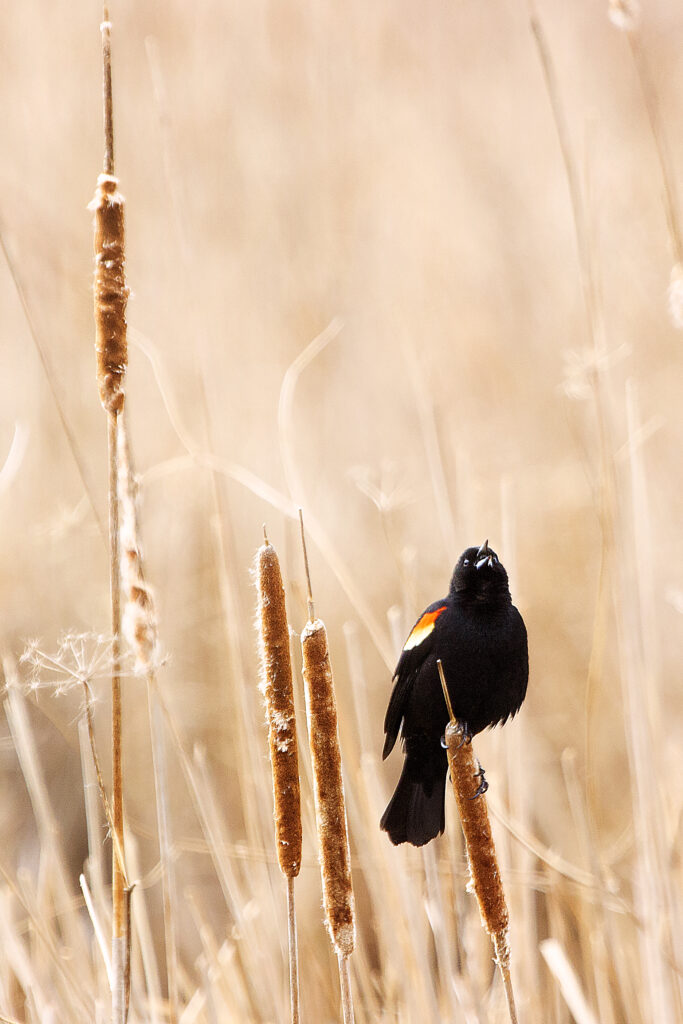
Following on the Middle English theme of yesterday… “Sumer Is Icumin In” is one of the oldest, if not the oldest, canons in print (circa 1226). And here it is.
Svmer is icumen in
Lhude sing cuccu
Groweþ sed
and bloweþ med
and springþ þe wde nu
Sing cuccu
Awe bleteþ after lomb
lhouþ* after calue cu
Bulluc sterteþ
Bucke uerteþ
Murie sing cuccu
Cuccu cuccu
Wel singes þu cuccu
ne swik þu nauer nu
Sing cuccu nu. Sing cuccu.
Sing cuccu. Sing cuccu nu.
You want the crib sheet?
*Lhouþ (Lhouth) means “low” which means “moo” (source: OED).
**There are disagreements over the meaning of uerteþ (verteth). Some proposed definitions are:
-Farts
-Darts
-Harbour in the green or fern (“vert” coming from the French word for green)
In the Middle English alphabet, the letter þ is a thorn, equivalent to modern th. We substituted “th” in the lyrics below to make it more readable to the modern reader:
In this theme, Great Meadow is teaming with redwings. All the males are screaming for mates. Emphasis on the “s,” because these birds a polygynous and the males spend a lot of time keeping the harem in order. Figure 1 shows a male calling our amount the cattails. “Sing cuccu!”
